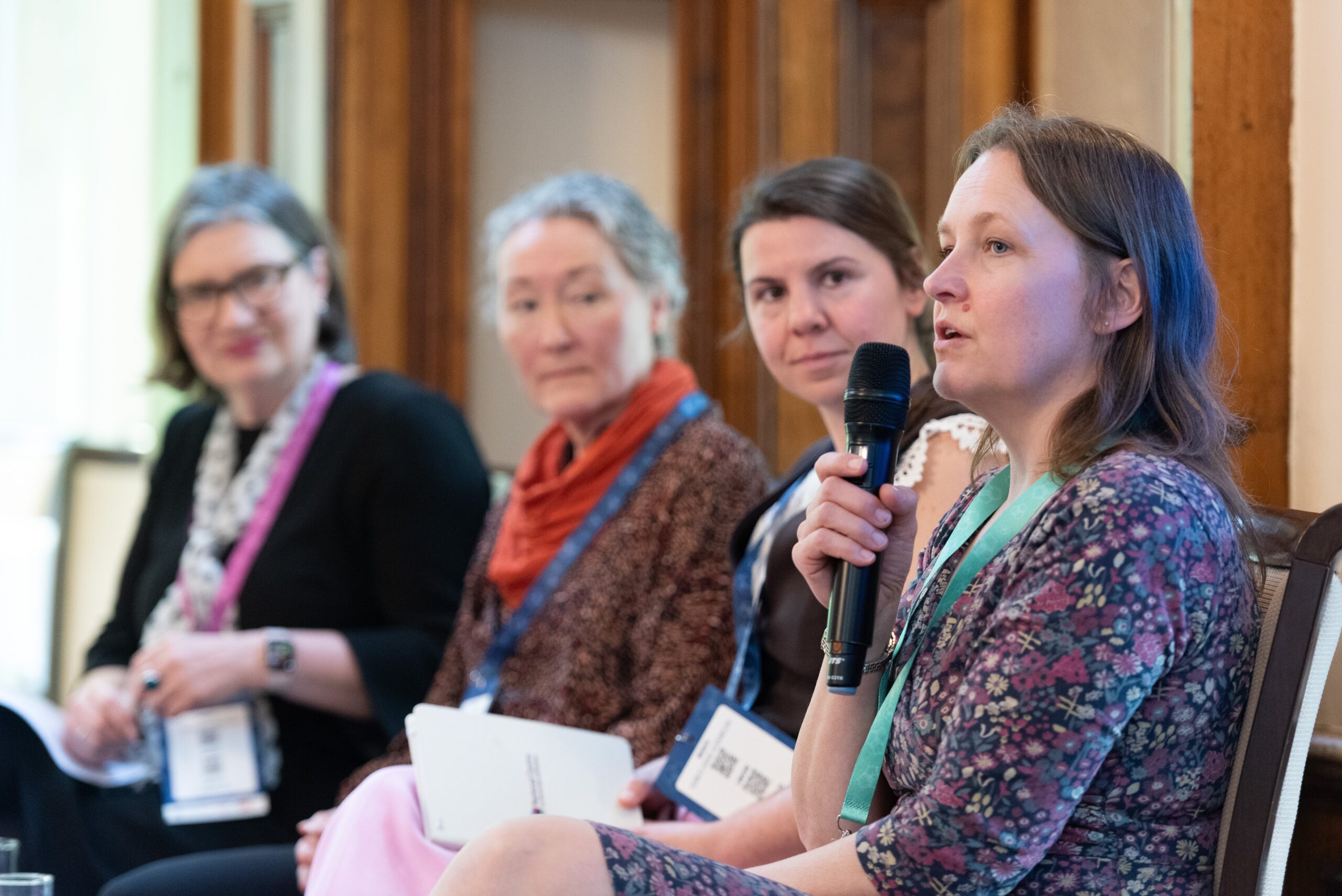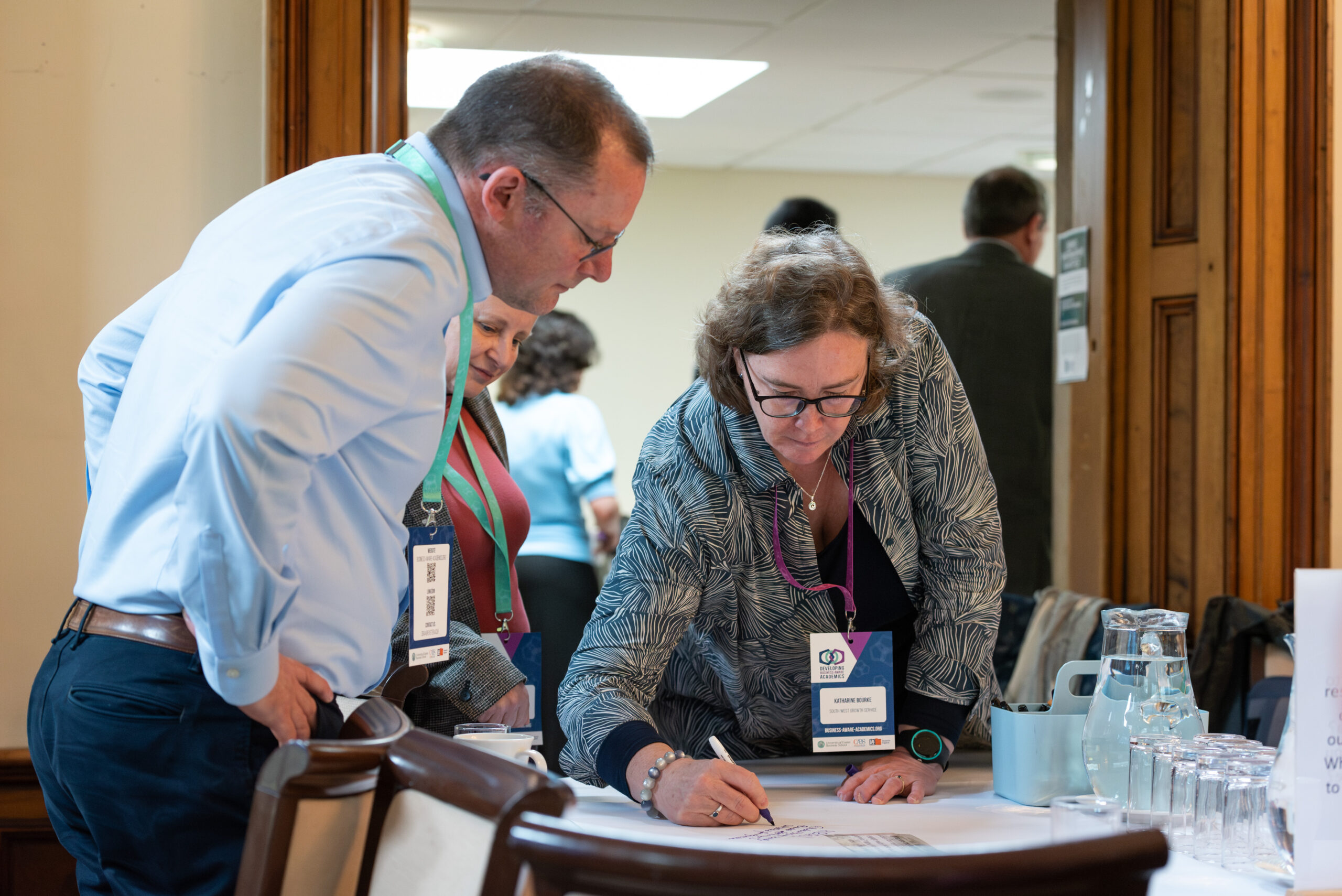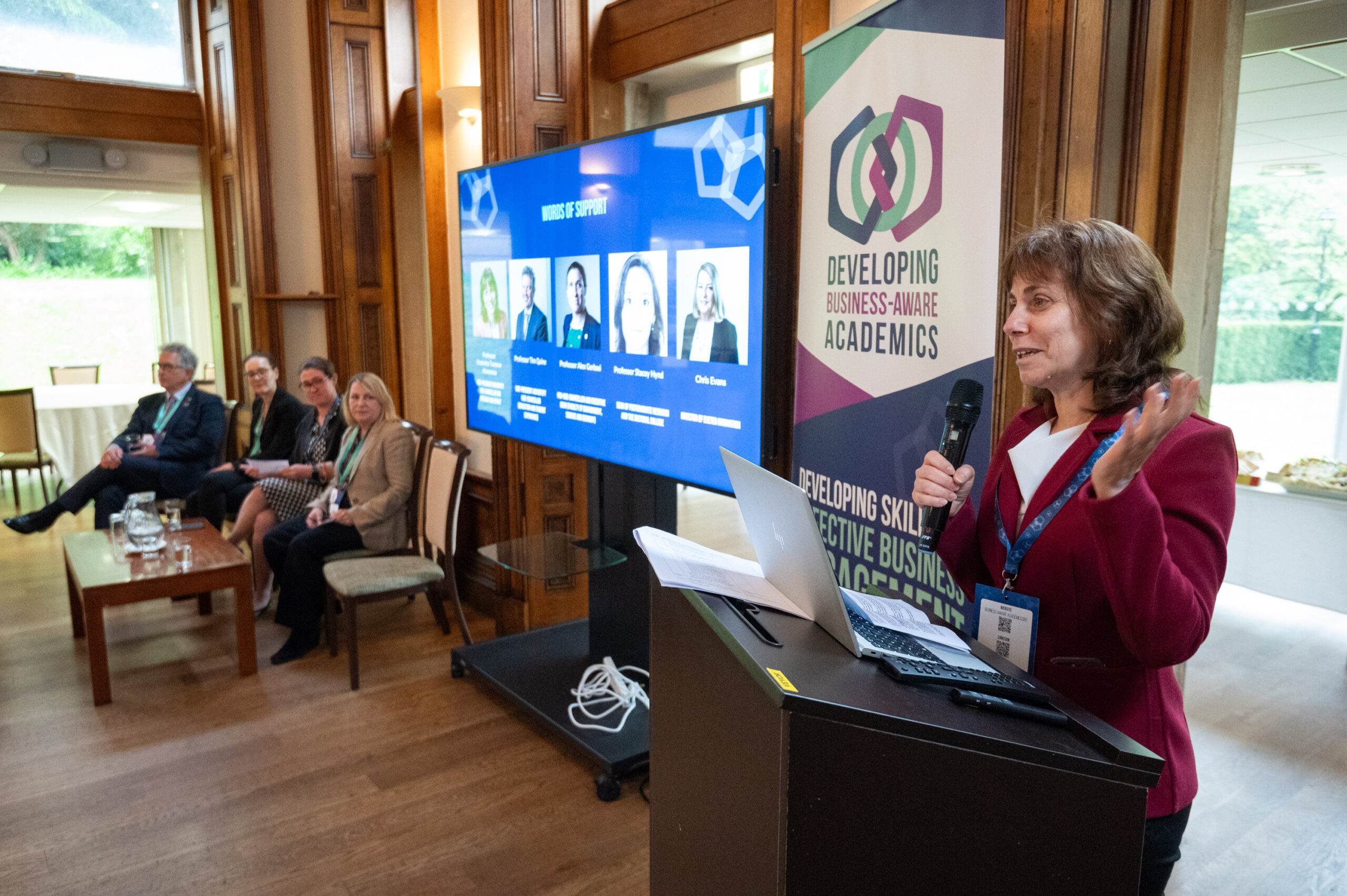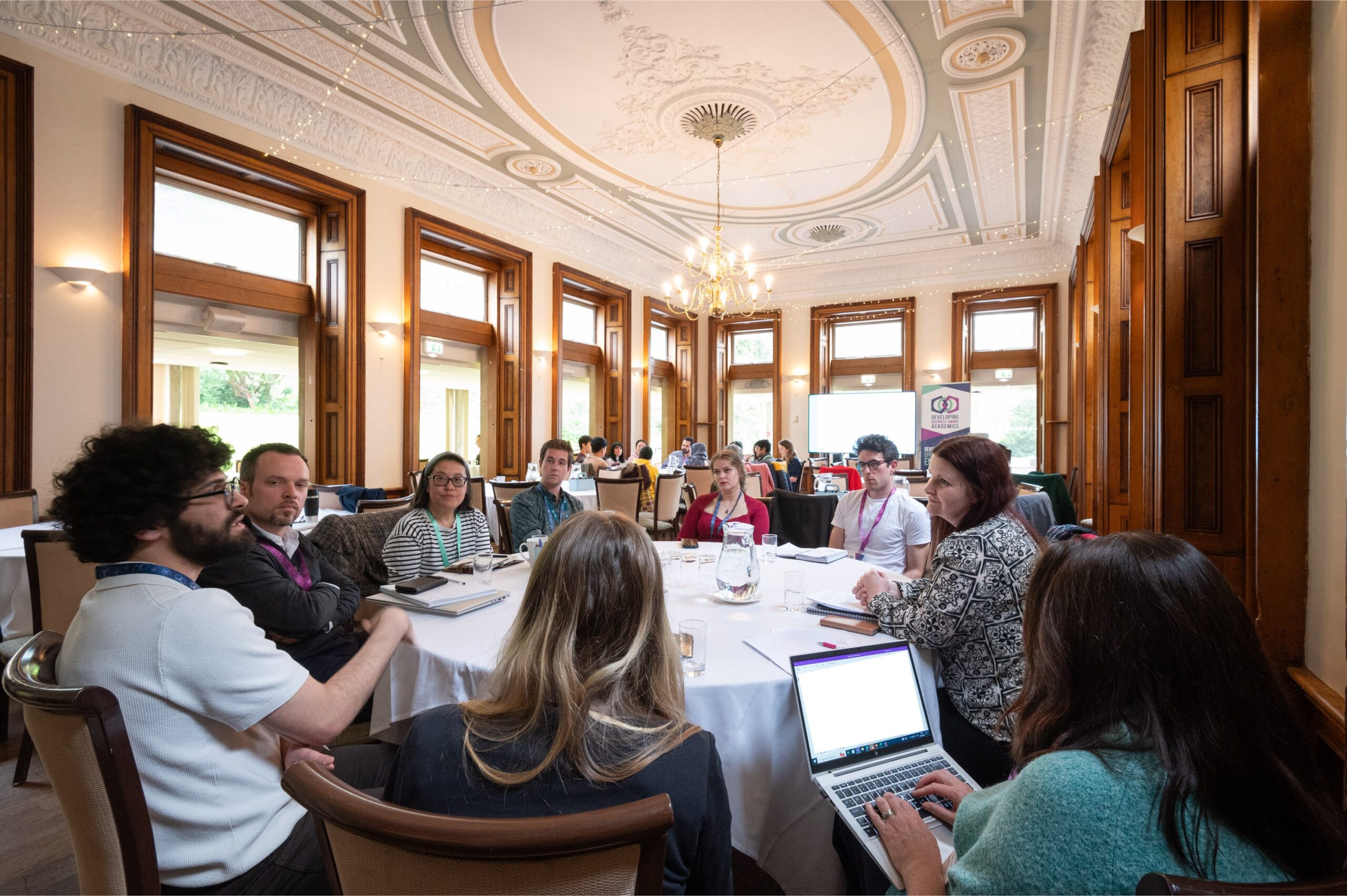Developing Business-Aware Academics launches at University of Exeter with words of support from leaders in industry, academia and policy – Published: 28 May 2024
Inspiring researchers to build collaborations beyond academia for a healthier, more sustainable and socially just society
68 attendees | 10 organisations | 3 University of Exeter faculties | 23 University of Exeter departments and divisions
Developing Business-Aware Academics (DBAA) hosted a launch event on 30th April at the University of Exeter, bringing together representatives from industry, academia and policy along with a special session for early-career researchers.
The DBAA project is developing an evidence-led programme of skills training and networking to change mindsets and inspire early-career researchers to engage beyond academia. Pilot initiatives will be trialled and evaluated at the University of Exeter and partner organisations, with the aim of making policy recommendations and identifying sustainable approaches for future rollouts.
Event attendees discussed ways to empower researchers from all disciplines with the skills, mindsets, networks and confidence to collaborate effectively beyond academia.
Project Director Professor Alison Truelove kicked off the event by asking a panel of experts from the Chartered Association of Business Schools, Aston University College of Business and Social Sciences, National Centre for Universities and Business and Pfizer, for their perspectives on the value and potential of the project at a national level.

Left to right: Flora Hamilton (CEO, CABS), Paula Whitehouse (Deputy Dean Enterprise and Engagement, Aston University College of Business and Social Sciences), Danielle Croucher (Policy Lead – Skills and Talent, NCUB) and Liz Collins (Executive Director Pharmaceutical Sciences, Pfizer).
Paula Whitehouse, Deputy Dean Enterprise and Engagement at Aston University (College of Business and Social Sciences), said:
“Although there is already some fantastic activity in the university-business space, it’s not yet embedded. It would be a great win for the Developing Business-Aware Academics project to embed business-awareness into established early career researcher development. By building mindsets and skillsets we give researchers choice and equip them with the awareness and confidence to take their careers, and their research, to new levels in universities and beyond.”
Liz Collins, Executive Director for Pharmaceutical Sciences at Pfizer, commented “For me, the motivation to collaborate with universities is the skills gap. With around 133,000 life sciences jobs to be filled by 2030, we need to find ways to close the gap. I have previously had very positive experiences of working with academics via collaborative innovation projects. Developing Business-Aware Academics is a driver for more like this. It has the potential to enable mobility and to bring new skills into businesses.”
Attendees discussed the value of industry placements for academics, the cultural implications of shifting to research roles beyond academia, and the need for sector- and discipline-specific researcher development support.
Valuable insights on the importance of using a common language and demystifying terminology to facilitate collaboration were shared via a World Café activity.

Senior Leaders from the University of Exeter then gave inspiring words of support. They emphasised how well aligned the project is with local and national strategies to drive economic growth, and the huge potential of the project to help accelerate research impact and drive the change needed to solve pressing challenges.

Left to right: Professor Tim Quine (Vice-President and Deputy Vice-Chancellor – Education and Student Experience), Professor Stacey Hynd (Dean of Postgraduate Research and the Doctoral College), Professor Alex Gerbasi (Pro-Vice-Chancellor and Executive Dean – Faculty of Environment, Science and Economy), Chris Evans (Director of Exeter Innovation) and Professor Krasi Tsaneva-Atanasova (Vice-President and Deputy Vice-Chancellor – Research and Impact).
Professor Krasi Tsaneva-Atanasova, Vice-President and Deputy Vice-Chancellor (Research and Impact) said: “At the University of Exeter we take pride in our cross-sectoral research. Developing Business-Aware Academics is a great example of this. By building an evidence base about existing provision and by identifying the needs of researchers and external organisations, the project will have significant impact and will make a crucial contribution to what supportive culture looks like in the university-business collaboration space.”
Professor Stacey Hynd, Dean of the Doctoral College said: “The specialist, evidence-based, targeted training provided by the project will give early-career researchers confidence in the transferability of their research and their skills.”
In the afternoon, postgraduate researchers, early-career researchers and researcher developers took part in small group discussions to explore the challenges, barriers, motivators and enablers of engaging with partners beyond university and applying their research outside traditional academic settings.

Discussions were wide-ranging and included methods of influencing research culture, how to spot knowledge gaps in industry, and how to identify research impact. Perceptions of business varied widely among participants as did opinions on the extent to which commercial interests can align with positive impact. Visa restrictions were raised as an issue that limits who can participate in industry placements, and there was consensus that it is not always easy to find the entrepreneurship support that is already available to researchers.
About Developing Business-Aware Academics
The Developing Business-Aware Academics project is building a self-sustaining programme of initiatives that provides early-career researchers with the skills, mindsets and networks to create strong partnerships beyond academia, boosting economic growth and enabling a healthier, more sustainable and socially just society.



















